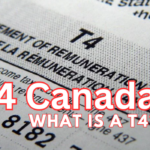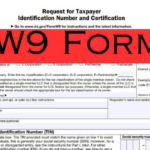DWP £756 Universal Credit Deduction A Year: Warning Issued, Who Should Know about this and other details are discussed here. Millions of Universal Credit recipients are experiencing significant financial setbacks due to automatic deductions from their payments.
DWP £756 Universal Credit Deduction
According to the New Economics Foundation, these deductions—meant to repay debts such as emergency advance payments and previous overpayments from the Department for Work and Pensions (DWP)—have reduced basic Universal Credit payments by an average of 8 percent. This article delves into the implications of these deductions, who they affect, and what claimants can do to manage or contest these reductions.
The Impact of Deductions
On average, Universal Credit claimants are losing £63 each month due to these automatic deductions, amounting to £756 over the course of a year. This loss represents a significant portion of the income that many rely on for basic living expenses. In practical terms, for every £13 a claimant is due, £1 is deducted to repay various debts.
|
Important Links |
Connor Lawlor, a benefits expert at the charity Turn2us, explains that these debts can accumulate in several ways. They include overpayments of Universal Credit and other benefits (even if the overpayment was due to an error by the DWP), benefit advances, and the recovery of hardship payments.

Additionally, the DWP can deduct payments on behalf of third parties if a claimant owes debts to them, including rent and service charge arrears, council tax arrears, court fines, child maintenance, and utility bills like electricity, gas, and water.
Who is Affected?
The automatic deductions affect a wide range of households:
- Nearly one million households are repaying budgetary advances from the DWP, taken to cover emergency costs.
- Approximately 730,000 households are repaying advances taken to cover the five-week wait for their first Universal Credit payment.
- Around 640,000 households are repaying tax credits that were previously overpaid by HMRC.
- Hundreds of thousands more households are experiencing deductions for various other debts.
These deductions are particularly concerning for low-income families who are already struggling to make ends meet. The reduction in their Universal Credit payments can exacerbate financial hardship, making it more difficult to cover essential living expenses such as food, housing, and utilities.
Seeking Help and Managing Deductions
Given the significant impact of these deductions, it is crucial for affected individuals to seek debt advice as soon as possible. Mr. Lawlor emphasizes the importance of understanding why deductions are taking place and advises claimants to request detailed explanations from the DWP if they have not received them.
The benefit office should provide clear reasons for any deductions. If claimants believe that an overpayment or debt is incorrect, they have the right to dispute it. To do so, they must provide evidence to support their case. This might include documentation showing that an overpayment was made in error or that a debt has already been repaid.
|
Important Links |
Steps to Take
If you are a Universal Credit claimant facing deductions, here are steps you can take:
- Request Information: Ask the DWP for a detailed explanation of why deductions are being made from your payments.
- Seek Advice: Contact organizations like Turn2us or Citizens Advice for guidance on managing debt and understanding your rights.
- Gather Evidence: Collect any relevant documents that can help you dispute an overpayment or debt. This might include payment receipts, bank statements, or correspondence with the DWP.
- File a Dispute: If you believe a deduction is incorrect, formally dispute it with the DWP, providing all necessary evidence to support your claim.
- Manage Your Budget: Create a detailed budget to manage your reduced income and prioritize essential expenses.
Conclusion
The DWP’s automatic deductions from Universal Credit payments are causing substantial financial strain for many households. With deductions averaging £63 per month or £756 annually, it is crucial for affected individuals to understand the reasons behind these reductions and to take proactive steps to manage their financial situation. Seeking debt advice and disputing incorrect deductions can help mitigate some of the financial challenges posed by these automatic reductions.
Awareness and understanding of these issues are essential. By staying informed and seeking support, claimants can better navigate the complexities of the Universal Credit system and work towards financial stability. For more detailed information and assistance, visit the official GOV.UK website or reach out to debt advice organizations.





